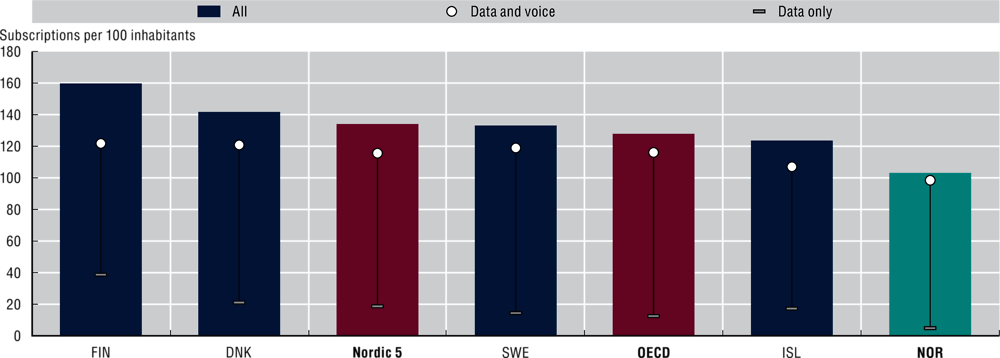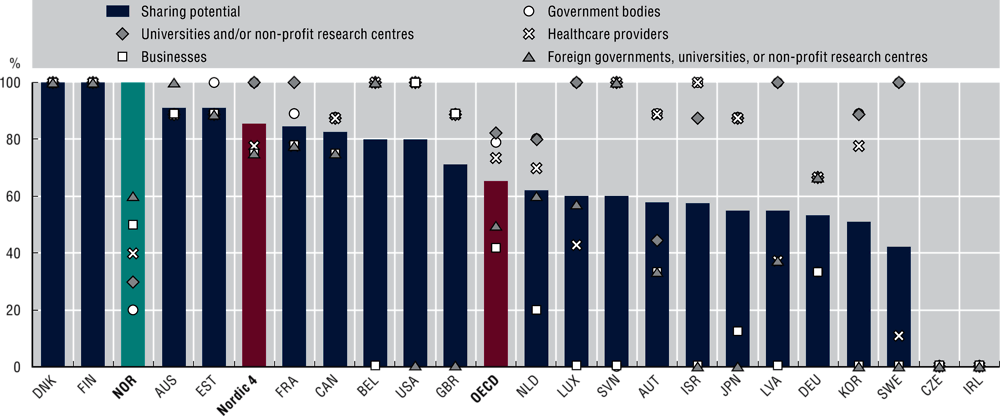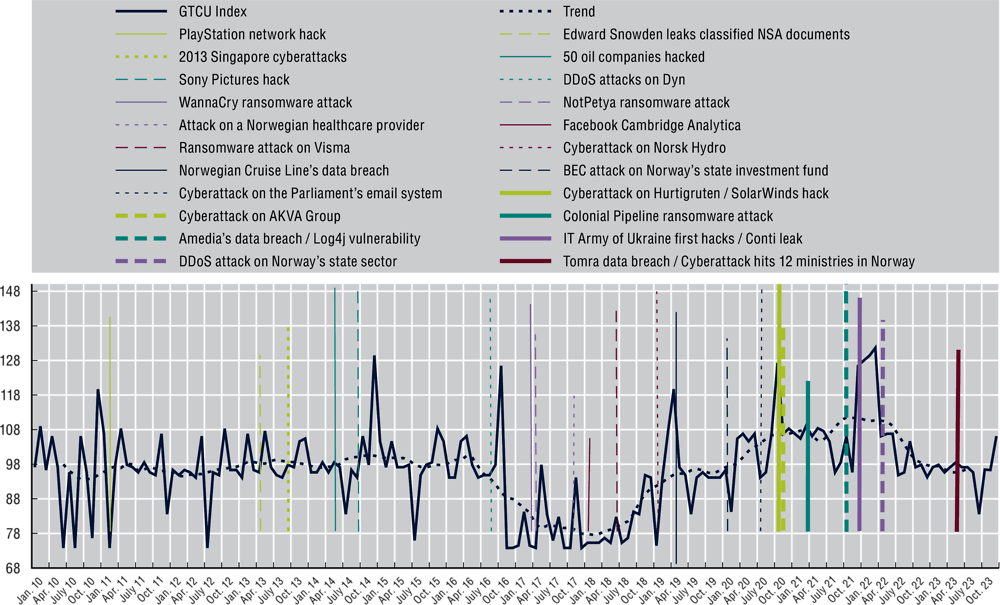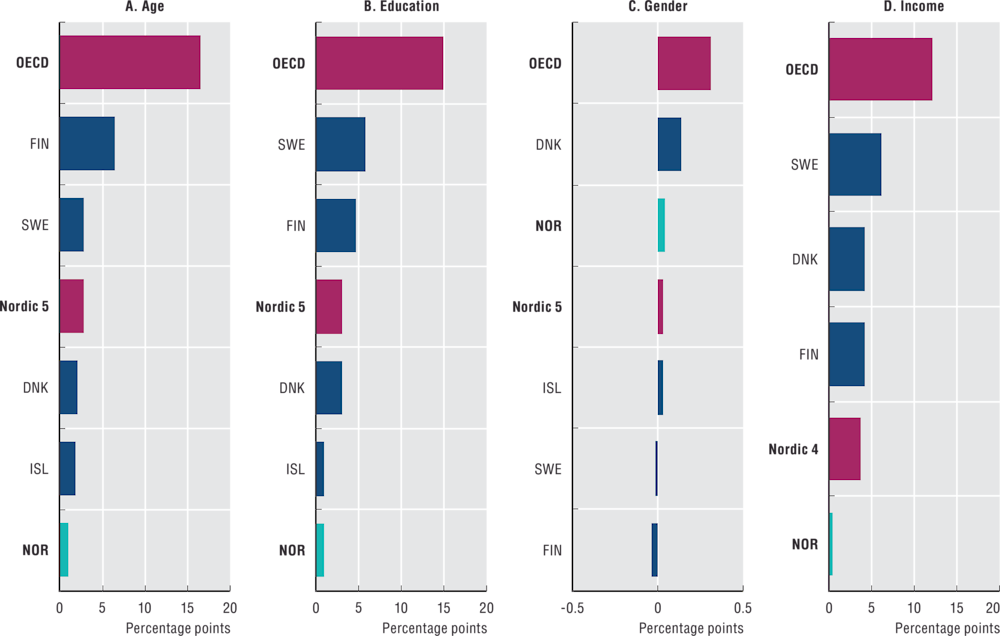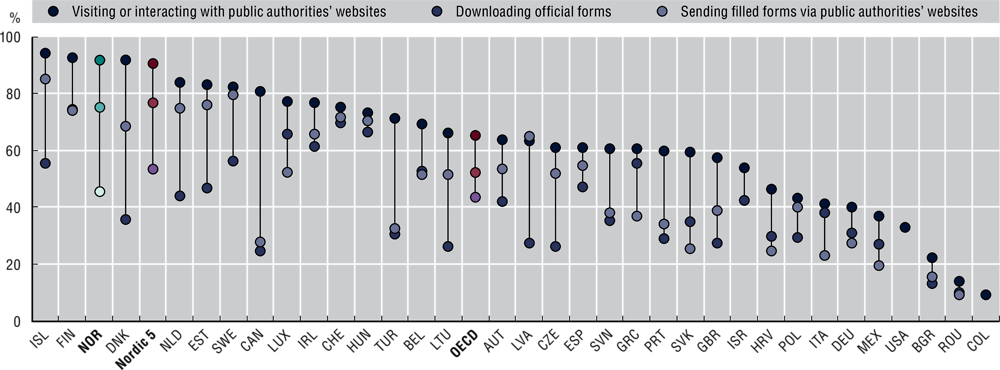In the OECD, SMEs and young firms create a disproportionate number of jobs relative to their size, and they underpin economic growth. Digital tools can help SMEs develop more efficient business processes and diverse product lines, as well as scale up and internationalise. However, smaller, younger firms may face barriers to adopting new business models, investing in key technologies or developing the skills to use them.
SMEs play a crucial role in Norway’s economy, contributing to nearly half of employment (OECD, 2023[11]) and serving as catalysts for innovation. In 2023, 64% of Norwegian SMEs had access to fixed broadband download speeds of at least 100 Mbps. This was above the EU average (62%) but below Denmark (86%), Finland (76%) and Sweden (77%) (OECD, 2024[4]). However, obstacles persist for smaller and younger Norwegian companies in integrating into digital markets, accessing capital, and acquiring information and communication technology (ICT) skills.
The shortage of risk capital is another common barrier for Norwegian SMEs to scale up and spread their productivity benefits. Venture capital (VC) firms and investors are key mechanisms for firms with high-risk profiles. Beyond financing, venture capitalists play pivotal roles in guiding firms through strategy development. They offer managerial advice and foster network connections in exchange for shared ownership of the business, with the ICT sector instrumental for knowledge and production networks (OECD, 2023[11]). However, VC investment in firms within the ICT sector in Norway is one of the lowest in the OECD (OECD, 2024[12]).
A tight labour market and the need to adapt to a highly digital economy and society in Norway add more pressure on SMEs. Recent data indicate that Norwegian medium-sized enterprises offering positions for ICT specialists (17%) lag the Nordic average (22%) (OECD, 2024[13]). In terms of sophisticated technologies, Norwegian small-sized enterprises have lower adoption rates of AI (8%), IoT (22%) and 3D printing technology (3%) than the Nordic average (17%, 29% and 6%, respectively) (OECD, 2024[14]).
Despite labour challenges, SMEs in Norway are well positioned in the development of ICT skills. Nearly a third (30%) of small businesses provide training to enhance ICT skills among their employees. Among the OECD, this places Norway behind only New Zealand (49%) and Finland (34%) in terms of ICT skills development within SMEs (OECD, 2024[15]).
To address these challenges and unlock the full potential of SMEs, Norway plans to increase digitalisation of SMEs. Digital Norway, a non-profit organisation with a special focus on SMEs, provides free online resources and training to promote effective use of advanced digital tools. Such initiatives play a crucial role in accelerating the digitalisation of Norwegian enterprises. In addition, collaborations involving data sharing, such as the incorporation of the online data repository Datafabrikken into the national open data portal data.norge.no, will further support SME participation in the data-driven economy and drive innovation.

